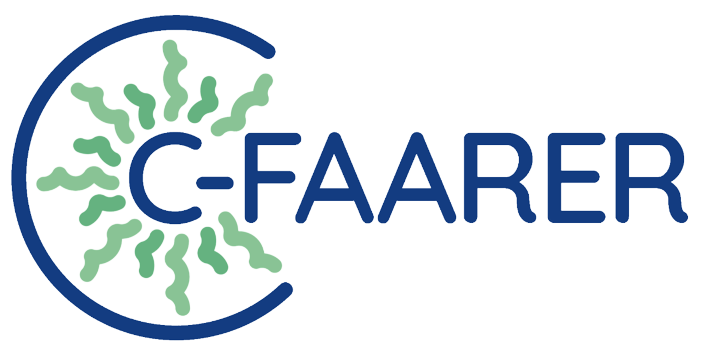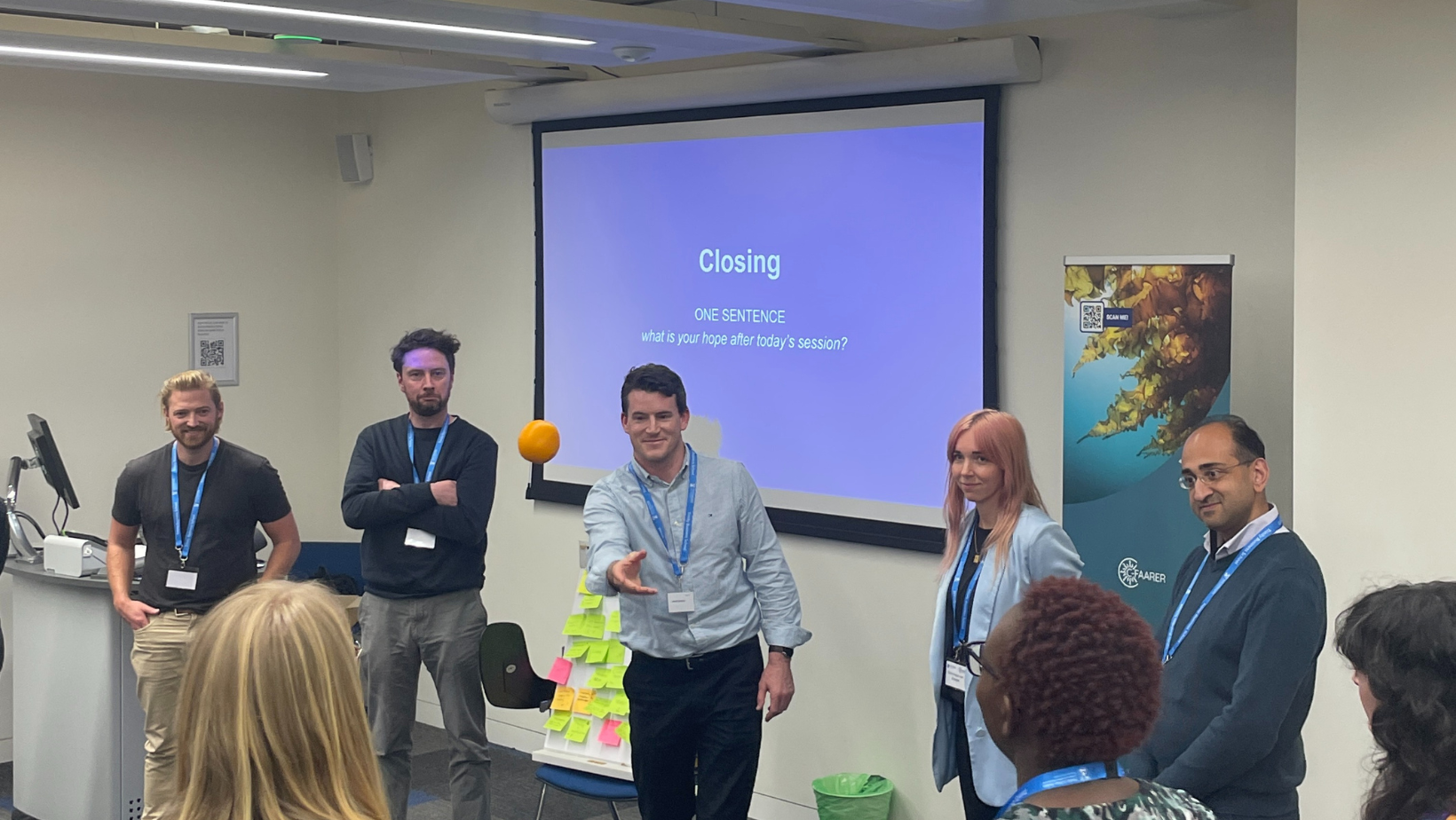Mapping Needs and Challenges to Harvest Hope in Ireland’s Ocean Farming Landscape
Recap: Stakeholder Workshop in Dublin
On November 16th, 2023, the C-FAARER consortium met with 20 ocean farmers, processors, producers and investors at Trinity College Dublin for a workshop to discuss the creation of an Irish cluster for stakeholders along the ocean farming value chain. Distinguished keynote speakers, Justin Davis from Câr-y-Môr and Heidi Meland from the Norwegian Seaweed Association, brought invaluable insights from their extensive experience in sustainable ocean farming practices and the importance of cohesive community action.
The event was facilitated by a two-phase communication strategy, incorporating brainstorming exercises to catalyze collective thinking and problem-solving.
Understanding Ireland's Ocean Farming Challenges
The workshop was instrumental in identifying four major challenges that are hindering the progress of regenerative ocean farming in Ireland.
1.Regulatory Hurdles and Licensing Complexities
Participants expressed concerns over the cumbersome and often restrictive regulatory environment that governs ocean farming in Ireland. They pointed out the perceived lack of government support for seaweed harvesting policies and a slow process for licensing, which is crucial for both wild harvesting and seaweed hatchery farming. One ocean farmer revealed it had taken him an entire twelve years to secure a permit. Without government intervention to simplify and expedite the licensing process, the potential for economic and environmental benefits remains unrealised.
2.Funding and Financial Constraints
Securing funding, especially for startups and small-scale operators, remains a daunting challenge. This includes difficulties in accessing grants, loans, and investments necessary for both initial setup and ongoing operations. Operators encounter a paradoxical situation: they must show significant operations to attract funding, yet scaling their operations is dependent on securing that very funding. Increased costs, such as the rising energy costs, add another layer of complexity to this challenge. Furthermore, a gap in understanding among some stakeholders regarding the intricacies of the funding process, can lead to missed opportunities.
3. Access to Resources and Infrastructure
One of the most pressing challenges highlighted during the workshop is the limited access to essential resources such as hatcheries and refineries. These specialized facilities are vital for spawning, seeding, growing, and processing, which are pivotal stages in the cultivation of seaweed and shellfish. The scarcity of such installations poses a significant bottleneck to both the growth and sustainability of the industry. Further compounding the issue is the lack of integrated infrastructure that can support the entire lifecycle of seaweed and shellfish farming, from seed to product.
4.Knowledge Sharing and Community Engagement
The workshop highlighted challenges in establishing communication and knowledge-sharing platforms across the industry. Engaging with local communities, leveraging their traditional knowledge, and fostering a culture of collaboration were identified as key areas needing improvement. This informational gap contributes to a disconnection between the various stakeholders in the seaweed value chain, from harvesters and growers to buyers and consumers. There’s also the challenge to attract the next generation of seaweed farmers, who are essential for sustaining and advancing the industry.
Unveiling the Sector's Needs
During the workshop, the pressing need for a collective effort was unmistakable—a sentiment underscored by the absence of a unified cluster for stakeholders along the ocean farming value chain in Ireland. By establishing the cluster, the industry can forge a united front to tackle the challenges together.
At the heart of this collective endeavour is the necessity for a clear, shared vision to guide collective efforts toward common goals, alongside inclusive collaboration ensuring active engagement and contributions from all parts of the value chain.
Ending on a Note of Hope
We ended the workshop with a powerful and unifying note—a resounding message of hope.
“Hope that we keep this momentum up, with everyone coming together and showing up wanting to start a cluster, and that this time, it actually happens.”
“Hope that connections can be made with those eager to fund this visionary idea, propelling it toward reality.”
“Hope that we can engage with those in positions of power, forging alliances to confront the industry’s most pressing challenges, including addressing environmental issues.”
What’s Next?
We’re working on the creation of an online community dedicated to the Irish cluster and all global stakeholders involved in the ocean farming value chain. Register for our newsletter today and stay up to date with the latest developments!




